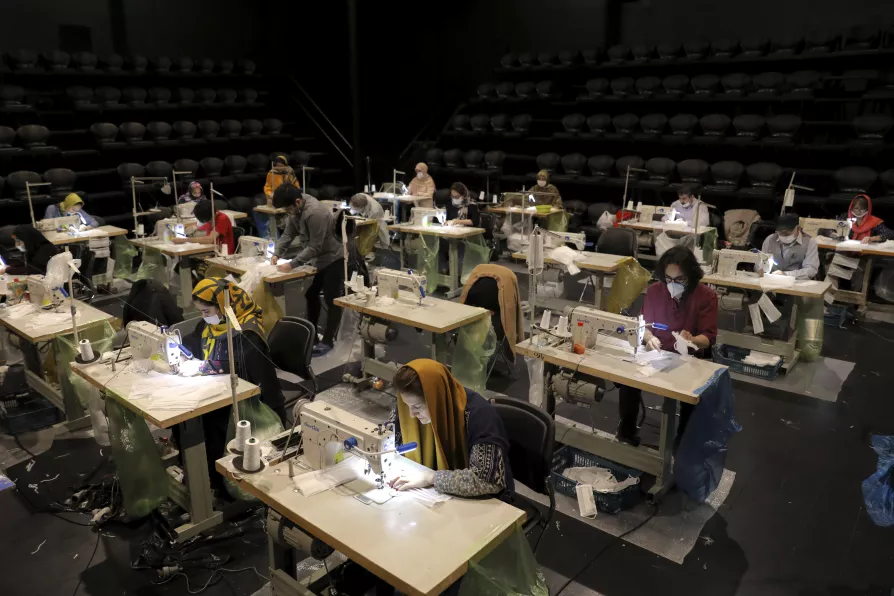
 Volunteers wearing face masks to curb the spread of the new coronavirus, sew face masks for poor people, at the Hafez theatre hall in downtown Tehran, Iran, on April 15
Volunteers wearing face masks to curb the spread of the new coronavirus, sew face masks for poor people, at the Hafez theatre hall in downtown Tehran, Iran, on April 15
THE Committee for the Defence of the Iranian People’s Rights (Codir) has accused the Iranian regime of gross irresponsibility and negligence in its approach to the Covid-19 pandemic in Iran.
While there were widespread indications that the virus had reached Iran in January, the regime refused to acknowledge its presence or take any measures to prevent its spread.
Codir cites as evidence of the regime’s negligence the fact that the regime wanted mass participation in the celebrations marking the 41st anniversary of the 1979 Revolution on February 11, as well as encouraging a high turnout for the parliamentary elections that took place on February 21.

MOHAMMAD OMIDVAR, a senior figure in the Tudeh Party of Iran, tells the Morning Star that mass protests are rooted in poverty, corruption and neoliberal rule and warns against monarchist revival and US-engineered regime change

The Committee for the Defence of Iranian People’s Rights (Codir) welcomes demonstrations across Iran, which have put pressure upon the theocratic dictatorship, but warns against intervention by the United States to force Iran in a particular direction

Payam Solhtalab talks to GAWAIN LITTLE, general secretary of Codir, about the connection between the struggle for peace, against banking and economic sanctions, and the threat of a further military attack by the US/Israel axis on Iran

The Islamic Republic is attempting to deflect from its own failures with a scapegoating campaign against vulnerable and impoverished migrants, writes JAMSHID AHMADI










